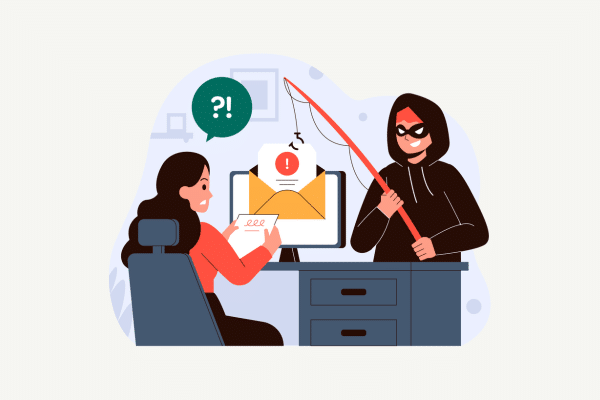
Tax season is just around the corner, and unfortunately, so are the scammers. These cybercrooks are out to steal your identity, drain your bank account, and maybe even file a tax return in your name. The results? Lost money, a wrecked credit score, financial chaos, and hours of your life spent trying to fix the mess.
The best defense? Don’t take the bait. Scammers will come at you through email, mail, and even phone calls, trying to scare or trick you into giving up your personal information. Here’s what you need to know to stay one step ahead of them.
📌 Steps to Protect Yourself:
- ✅ Stay vigilant and skeptical. Never open a link or attachment from an unknown or suspicious source. Even if the email looks legit, be cautious—cybercrooks are pros at mimicking trusted businesses, friends, and even the IRS.
- ✅ Remember, the IRS doesn’t contact you through email. If you get an email claiming to be from the IRS or directing you to a website, don’t click. The IRS doesn’t ask for sensitive information like Social Security numbers, PINs, or credit card details via email, text, or social media. If you receive such a message, contact us before doing anything.
- ✅ Double-check email addresses. Scammers often spoof email addresses by making small changes. What looks like a message from a friend or company could actually be from a cybercriminal using a similar, but fake, address.
- ✅ The IRS won’t call to threaten you. If you receive a call from someone claiming to be the IRS and demanding immediate payment or threatening legal action, hang up. The IRS doesn’t operate this way, and they certainly don’t ask for payment via gift cards.
- ✅ Don’t click on suspicious links. Legitimate companies won’t ask you to update sensitive information through an email link. When in doubt, delete the email and contact the company directly.
- ✅ Use strong passwords and security software. Keep your online accounts secure with strong, unique passwords and up-to-date security software. Some security tools can even flag suspicious websites before you get scammed.
- ✅ Use multi-factor authentication. Two-factor authentication adds an extra layer of protection by requiring a second step to verify your identity, usually a code sent to your phone. Even if someone gets your password, they’ll be blocked without the code.
- ✅ Contact us before responding to any IRS communication. If you receive a letter, call, or fax from the IRS, reach out to us before sharing any information. We can help verify if it’s legitimate.
- ✅ Educate the elderly. Scammers often target older adults, so make sure your elderly loved ones know how to spot phishing scams and other cyber threats.
- ✅ “Too good to be true” scams. Scammers might try to trick you by claiming you’ve won a foreign lottery or inherited money from abroad. If something sounds too good to be true, it probably is.
Report Phishing Scams:
If you come across a suspicious email, you can help combat cybercrime by forwarding it to phishing@irs.gov. Every little bit helps in the fight against these cybercrooks.
